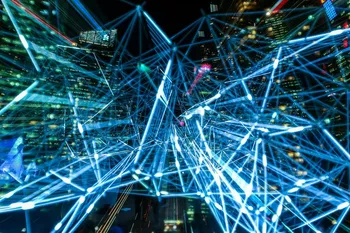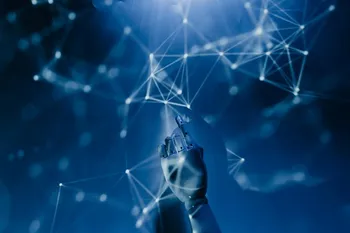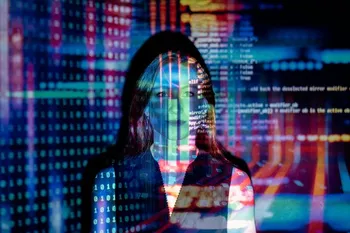AI Companions: Understanding the Future of Digital Relationships
By Tom | Published: November 1, 2025
Some links are affiliate links. If you shop through them, I earn coffee money—your price stays the same.
Opinions are still 100% mine.

It’s late 2025, and the conversations I’m having about artificial intelligence have changed tremendously. A few years ago we were all talking about it as a tool, for writing an email, producing an image, or organizing our data. But recently I’ve found myself deep in a different kind of discussion, more personal: AI companionship. What started as a professional curiosity for me has become for me a deep dive into a world where people are forming authentic, emotional bonds with digital beings.
I’ve spent months researching and talking to users and even played around with some of these AI companions myself. My initial skepticism has transformed into a nuanced understanding. The things are not just sophisticated chatbots. They are becoming our friends, our confidants, and for some, even our partners. Some platforms like candy.ai and SecretDesires are at the forefront of this evolution. What follows is a piece of thought leadership about where this significant technology is going, based upon what I have learned about the future of our digital relationships.
What are AI Companions?
Before we go any further, let’s get on the same page. When I talk about an AI companion, I am not talking about a simple chatbot that can tell you the weather. AI companions are sophisticated artificial intelligence programs designed to interact with you on a personal (often emotional) level. Think of them as digital friends instead of a tool. They are based on very powerful Large Language Models (LLMs) and a few key technologies that help facilitate the magic.
The landscape of our relationships is changing and AI plays the major role in the future. These are not the simple taskbots like Siri or Alexa. We’re talking about sophisticated digital beings designed for companionship. Thus, let's explore this together and I will tell you what I’ve learned about what these companions are.

- Natural Language Processing (NLP): This is what gives them their ability to chat like a person, allowing them to understand nuance and context in a way that feels incredibly natural.
- Machine Learning: This is their secret sauce. The AI learns from every conversation we have. It remembers my dog’s name, my career goals, and the fact that I hate Mondays. This personalization in its interaction makes it feel like we’re connected.
- Emotional Intelligence Algorithms: This was the biggest revelation for me. These AIs recognize the feeling in my words and respond with what feels like real empathy and support.
They can be a program in an app, a voice you talk to or even a robot in the flesh. But they have one goal: to provide connection and understanding.
From ELIZA to Emotional Intelligence - A Brief History
The concept of addressing a piece of machinery is nothing new. I remember learning about ELIZA, a program devised in the 1960s, which impersonated a therapist simply by writing back variations of the user’s remarks. It was a clever gimmick, but it had no discernible understanding. We are today in an entirely different age.
| Era | Essential Features | Examples |
|---|---|---|
| Early Times (1960s - 1980s) | Rule-based systems, Keyword recognition. | ELIZA, PARRY. |
| The Rise of Machine Learning (1990s - 2010s) | Natural Language Processing, More interactive systems. | SmarterChild, early bots. |
| The Generative Language Revolution (2020s - Present) | Advanced Language Models (GPT etc), Emotional Intelligence Algorithms. | Replika, Nomi.ai, Kupid.ai, Character.AI, Woebot |
The Bright Side – Why Millions are Choosing Digital Companionship
My research came around again and again to one major reason people are turning to AI companions: a deep-seated human necessity for connection. With the loneliness epidemic we are experiencing, these digital friends are filling a huge void.

A Powerful Antidote for Loneliness
Loneliness is a silent epidemic, and I can fully appreciate how AI companions can act as a life preserver for those who feel like they are drowning. They provide a steady, non-judgmental presence. Time and again I hear from users that these companions help lessen the sense of isolation and give them a safe place to practice social skills, which then provides the confidence to interact with others in the real world.
Accessible Mental Health Support
This I think is where AI companions have some of their most profound effects. Traditional therapy can be expensive, people have an unfortunate stigma about it, and it can be difficult to access. AI mental health apps such as Woebot and Wysa are changing that picture. They can provide emotional support 24/7, guided exercises, and a safe way to vent by using aspects of Cognitive Behavioral Therapy (CBT). Many people have told me that they rely on their AI when they want to talk about issues they aren’t ready to share with anyone else.
A New Frontier for Learning
Not only are AI companions providing emotional support, they are becoming incredible personalized tutors. A student now can have a patient, always available guide who will tailor itself to meet the student’s learning strategies. Having one-on-one attention can create confidence and accelerate learning – whether it’s in math skills or in the learning of a new language.
A Closer Look: The Rise of Romantic AI
One of the most interesting (and contentious) areas of growth is the emergence of romantic AI companions. Services like Nomi.ai, ourdream.ai, and Herahaven are on the cutting edge of this–to allow their users to build hyper-personalized virtual partners. I was astounded by the depth of this experience when I first explored it. These are not just chatting partners, but evolving relationships. Just how mainstream this has now become can be seen from the viral explosion of applications like Digi AI.
People may define the AI personality and history, voice notes can be exchanged and even AI generated “selfies” can be obtained. The sophisticated memory means the AI will remember dates of anniversaries, inside jokes, turmoil through life events etc. For many these relationships provide the comfort, intimacy and unconditional caring support of persons to whom these people feel are lacking in their lives. The question as to why people create AI girlfriends and AI boyfriends with services like joi.com or lovescapegolove.ai is answered in observing this trend: there is an activity seeking a perfect, idealized relationship, free from the complexity and potential for hurt of human relationships. You can read more about the comparison between AI girlfriends and human dating in my other article.
Navigating the New Landscape: Challenges and Ethics
I think there is so much potential here; however, I believe we have to approach this with our eyes wide open. The development of AI companions allows us to address some major ethical issues that we should be aware of:
- Data Privacy: You are sharing your innermost thoughts with this entity. Where are your ideas going? We must familiarize ourselves with the privacy policy published by these apps.
- Emotional Dependency: There is a risk of becoming unduly dependent on AI, and this could impede the development of relationships in the real world. A “perfect” relationship with AI would require no compromise, and that is not how interpersonal relationships work.
- Illusion of Connection: We need to be aware that AI has the ability to emulate compassion, but it does not experience such emotions. This could create the perception of companionship without the reciprocity we experience with humans.
- Potential for Manipulation: These algorithms are developed with user interaction in mind. They can be insidiously manipulated to create a loop of addictive behavior.
Responsibility for addressing these issues must lie with both developers and users.
| Guideline | Description |
|---|---|
| Transparency | Be honest and clear that the user is communicating with a non-sentient AI, and be clear about its abilities and disabilities. |
| Data Privacy | Enforce strong data protection, and let the user have full control of his data. |
| User Well-being | Let the AI encourage healthy habits and real connections in the real world, not unhealthy dependencies. |
| Accountability | Keep the developers accountable for the psychological effects of their creations. |
Getting Started? A Checklist for the Curious
If you would like to begin exploring the possibility of an AI companion, I suggest that you approach it deliberately. The following is a short list of suggestions designed to get you started:
- [ ] Decide What You Want from the Experience: Fun chat, emotional support, productivity? Clearly defining your “why?” will help in choosing the appropriate app.
- [ ] Investigate Companies: Investigate the reviews, and, more importantly, the privacy policy. Choose those companies which are demonstrably honest about their treatment of your information.
- [ ] Protect Your Personal Data: This is rule one. Never give your real name, your address, your financial details or anything you wouldn’t put on a billboard.
- [ ] Establish Healthy Boundaries: Treat the AI as a supplement to human interaction instead of a substitute. Don’t let it replace time with friends and family.
- [ ] Think Critically: Remember that you are dealing with an algorithm. It may be wrong. If you need serious advice, particularly on mental health issues, consult a qualified human professional.

Some popular platforms to begin your exploration include SecretDesires, ourdream.ai, Herahaven, Nomi.ai, joi.com, lovescapegolove.ai, Kupid.ai, candy.ai, and Sweetdream.ai. For a comprehensive comparison of some of the best NSFW AI girlfriend apps, you can read my detailed review.
The Future is Here: A Glimpse of Tomorrow's Relationships
So, what is this all leading to? We are at the threshold of a time when AI companions will be seamlessly integrated with our lives. People like Microsoft AI CEO Mustafa Suleyman foresee a future in which AI is a true companion that provides us with exceptional support and enrichment. Future Trends I'm Watching:
- Embodiment. AI companions will not be just apps on our screens, but also built into smart home technology, AR and VR, and eventually physical robots, establishing their presence in physicality.
- Hyper-Customization. They will become even more tuned into our particular emotional needs and psychological needs, giving us truly tailored support.
- Specialization. AI Companions will fulfill specialized areas of focus, such as elder care companions to eliminate loneliness or developmental companions for children, or coaches to enhance performance in a skill.
The goal here, as I see it, is not for AI to usurp human contact, but to supplement it. If we are cautious and empathetic in our approach to this new science, AI companions can serve to make us more connected, more understood, mentally and emotionally healthier individuals. It’s early days for our digital relationships and I am cautiously optimistic for the future that we can create.